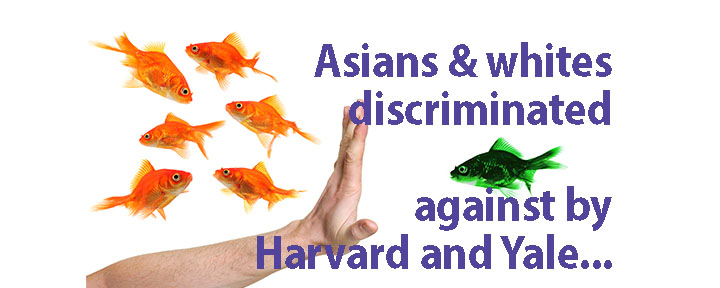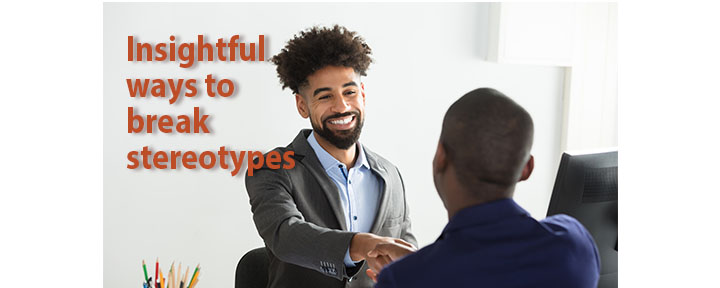
Discrimination comes in many forms. In a time when headlines like Black Lives Matter, Voters’ Rights Act, and others consume the press – as they should, — I’d like to address discrimination in college admissions against Asians and white applicants.
As a private college advisor, I work closely with hundreds of students as they apply to the Ivy League and other top universities in the world. My students conduct independent projects that change the world and make them dynamic young leaders. They study hard – like all college-bound students – but they separate themselves from their peers by doing unique projects over 1-4 years. They get in based on their academics and projects.
Yale University is under investigation for violations to the 1964 Civil Rights Act (considering race and ethnicity in admissions policies). Harvard is dealing with a similar case under appeal. What’s different now is that Asians and white students are being denied admission even when their scores and rankings might be higher than those of people of color who get in. The original Civil Rights Act was established so colleges wouldn’t discriminate against black and Hispanic students for simply being people of color. Now the Act is being challenged by the opposite end of the spectrum.
I completely support the BLM movement and believe that we as a society need to even the playing field so people of color have opportunities available to them. The rates at which blacks and Hispanics are incarcerated, killed by police, and receive higher education is appalling. Systemic changes need to be made starting in preschool so they will receive the skills and guidance needed to lift them out of this unconscionable state.
I do believe that students should be accepted to colleges based on their academic and innovative skills. Isn’t that why universities were organized in the first place? They were designed to be places of higher education where intellectuals gathered to share ideas and improve society. I don’t believe admissions officers should consider race or ethnicity and base admission decisions on a formula that factors in discriminatory practices.
When an Asian or white student is denied admission to an elite college, to open up a spot for a student who has lower academic and innovative skills, this is discrimination. It bothers me that I have to tell my students that if their last name is “Wong” or “Agrawal,” their applications have to be substantially better than student applicants who are black or Hispanic.
I met with a student who got into a 4-year college back under Affirmative Action. His academic foundation and ability to succeed in the freshman year was so low; his reading comprehension and writing skills were substandard. Even with tutoring and psychological support, the student dropped out and felt like a failure. Admitting students who don’t have the same high-caliber academic skills as the other students at the university will only exacerbate the low rate of graduation and career opportunities for these students.
Fixing this problem doesn’t start with admitting these students into colleges that they won’t prosper in. Instead, we need to create better preschools so underrepresented students have the same, or better, exposure to academics before they start kindergarten than their white and Asian counterparts. Elementary, middle, and high schools that serve students of color should receive more funding, smaller class sizes, better teachers (with better pay and benefits), computer equipment, and everything each student needs to be successful in school. Students who live in poor neighborhoods should be equipped with personal computers, internet, smart phones, and wifi. And during turbulent times like today, these students should also receive personal tutoring to ensure that they are learning, making it to classes whether on site or online, and completing daily homework and keeping up in classes. Then, and only then, will these students of color have a fair chance at moving up the ranks and succeeding in a world that is designed to keep them back.
Then, I believe the playing field will be more level for high school students applying to the elite colleges. That’s when all students can compete to get into college based on their own merit.
And if two students (one Asian/white; the other black/Hispanic) have the same academic and innovative skills, I believe the black or Hispanic student should be granted admission. That would be fair today.
SOURCE:
The post Discriminating against Asian or white students in college admissions does NOT level the playing field appeared first on Merit Educational Consultants.


